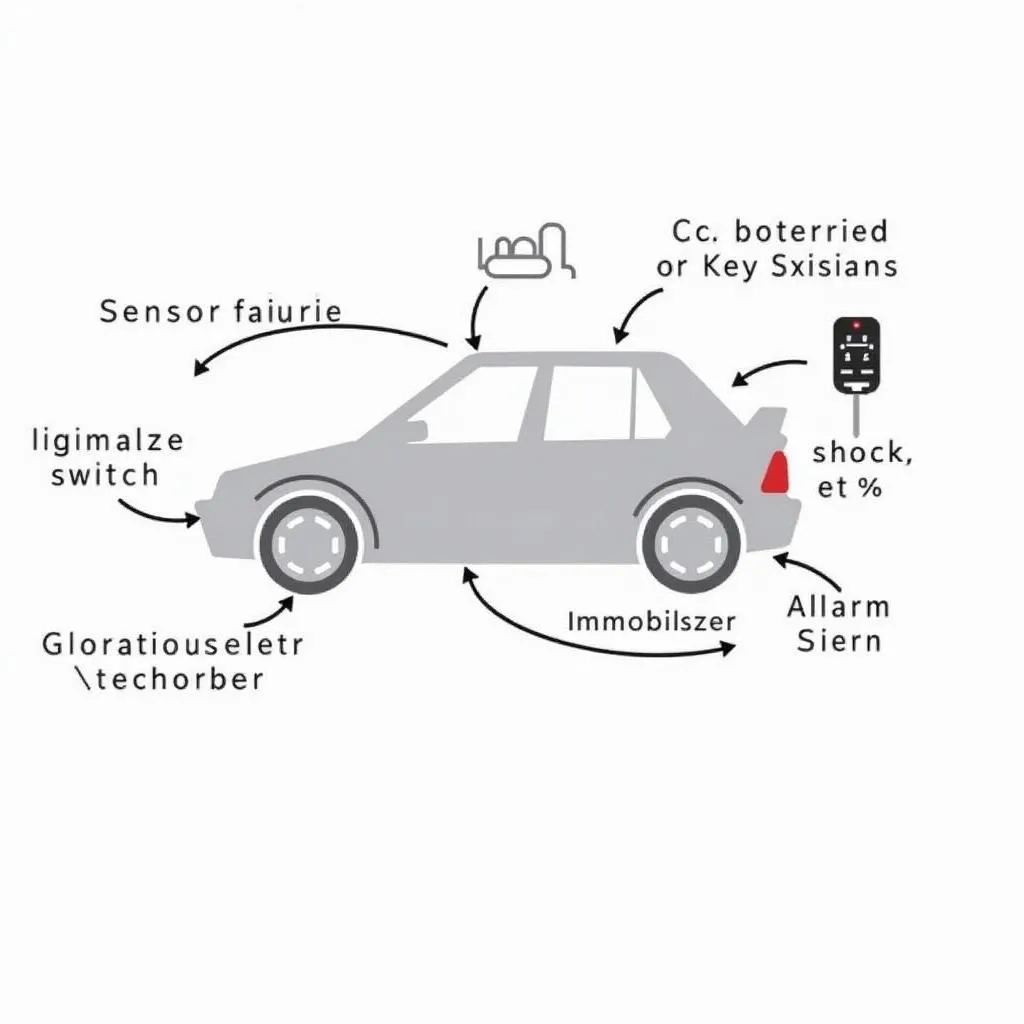Car fob keys have revolutionized how we interact with our vehicles, offering convenience and security. From locking and unlocking doors remotely to starting the engine with a push of a button, these small devices have become an indispensable part of modern driving. But what happens when your car fob key malfunctions? Understanding how these keys work, common issues, and solutions can save you time, money, and frustration. car fob keys
Decoding the Magic: How Car Fob Keys Work
Car fob keys, also known as remote keyless entry systems or key fobs, utilize radio waves to communicate with your car. Each fob transmits a unique coded signal that the car’s receiver recognizes. This signal triggers various actions, such as locking/unlocking doors, starting the engine, or activating the car alarm.
There are several types of car fob keys, ranging from basic remote entry fobs to more advanced smart keys and proximity keys. Basic fobs typically have buttons for locking/unlocking and panic functions. Smart keys often include a keyless ignition system, allowing you to start the car without inserting a physical key. Proximity keys, also known as keyless entry and start systems, automatically unlock the car doors when you approach and allow you to start the engine with a push-button.
Common Car Fob Key Problems and Solutions
Car fob keys, like any electronic device, can experience issues. Common problems include dead batteries, damaged buttons, internal component failure, and programming errors.
Dead Battery: A Quick Fix
A dead battery is the most frequent culprit behind a malfunctioning car fob key. Replacing the battery is usually a simple DIY task.
- How to identify: The fob key’s buttons become unresponsive or require multiple presses to function.
- Solution: Consult your car’s owner manual for instructions on how to access and replace the battery. Most fobs use standard watch batteries, readily available at most stores.
Damaged Buttons: A Closer Look
Worn or broken buttons can also prevent your fob from working correctly.
- How to identify: Physical damage to the buttons is often visible. The buttons might feel loose, stuck, or fail to register a press.
- Solution: While some minor button repairs can be done at home, it’s often best to consult a professional for car key fob duplicater or replacement.
Internal Component Failure: When Expertise is Needed
Internal component failure requires more specialized attention. This can be caused by water damage, physical impact, or simply wear and tear over time.
- How to identify: The fob key might be completely unresponsive, or certain functions may cease working.
- Solution: Contact a qualified automotive locksmith or dealership for diagnosis and repair. They can determine the extent of the damage and recommend the best course of action, whether it’s repair or car key fobs replacement.
Programming Errors: Restoring the Connection
Sometimes, a car fob key loses its programming and needs to be re-synced with your vehicle. This can happen after a battery replacement or other electrical disruptions.
- How to identify: The car fails to respond to any commands from the fob key, even with a new battery.
- Solution: Refer to your owner’s manual for reprogramming instructions, or visit a car key fob programming near me service provider. You can also explore online resources or consider a car key fob reset.
Expert Insights on Car Fob Keys
“Regular maintenance, such as keeping your car fob key dry and protected from extreme temperatures, can significantly extend its lifespan,” advises John Smith, a senior automotive technician at CarDiagTech.
Conclusion
Understanding your car fob key is crucial for a smooth driving experience. By knowing how it works and how to troubleshoot common issues, you can save yourself time, money, and the headache of being locked out of your car. Regular maintenance and prompt attention to any malfunctions will keep your car fob key functioning reliably for years to come. Don’t hesitate to seek professional help when needed, especially for complex issues like internal component failure or programming errors involving the car fob key.
FAQ
- How often should I replace my car fob key battery? Typically, every 2-3 years.
- Can I program a new car fob key myself? Some cars allow self-programming, while others require professional assistance.
- What should I do if my car fob key is lost or stolen? Contact your dealership or an automotive locksmith immediately to have it deactivated and replaced.
- How much does it cost to replace a car fob key? The cost varies depending on the make and model of your car, and the type of key.
- Are there aftermarket car fob keys available? Yes, but ensure they are compatible with your vehicle and offer adequate security.
- Can I use my car fob key if it’s wet? Try drying it thoroughly. If it still doesn’t work, it might need to be repaired or replaced.
- How do I prevent my car fob key from being hacked? Be mindful of where you keep it, and consider using a signal blocking pouch.


